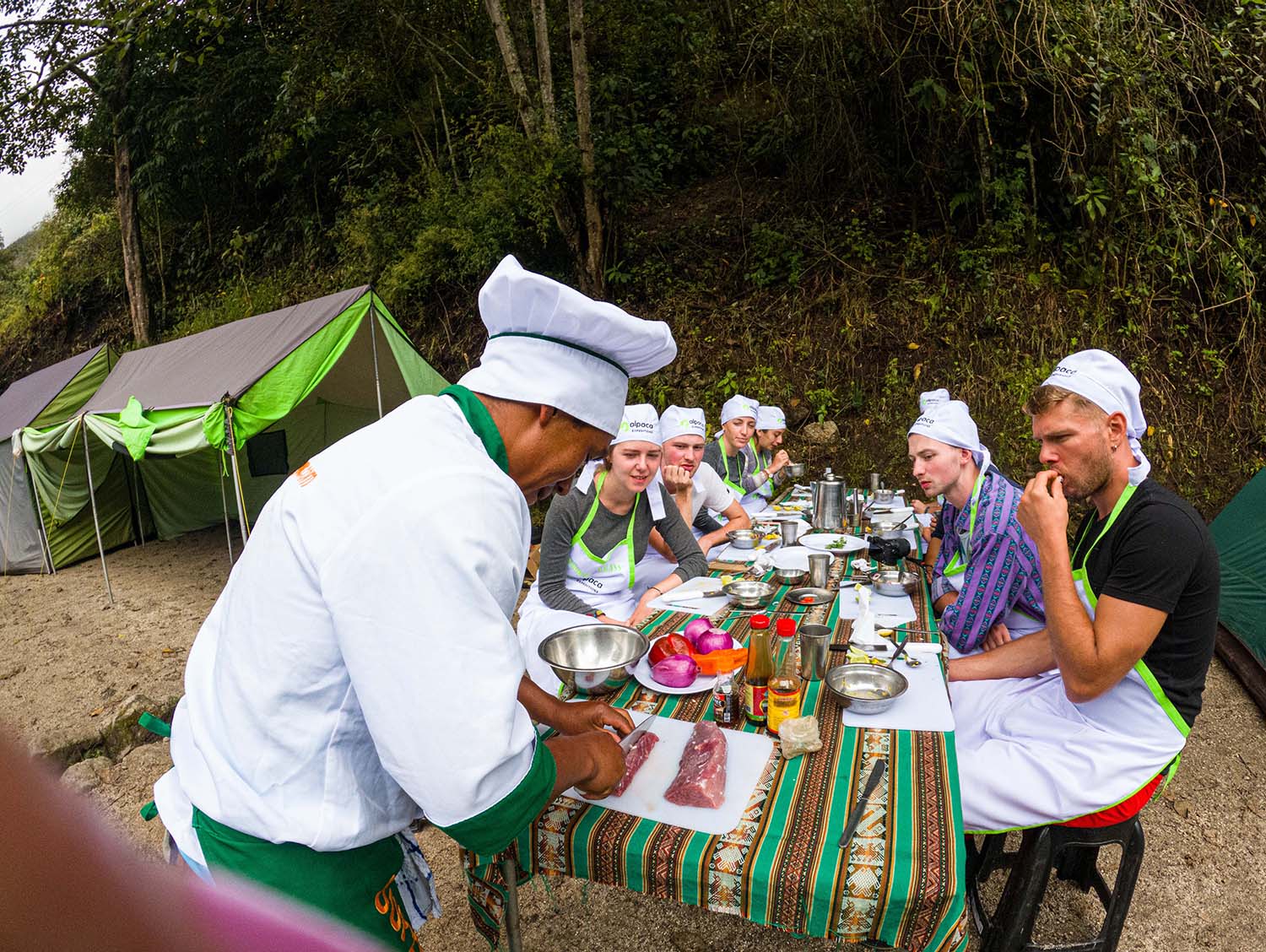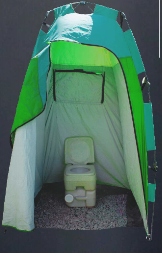2022 New Peru Porters Law – What It Says
Porters are an essential part of the trekking team on the Inca Trail, carrying tourists’ belongings and camping equipment from one camp to another. They put in incredible physical effort carrying heavy loads to make people’s experience easier, more comfortable, and enjoyable. Most people probably couldn’t do the hike if they had to haul everything themselves.
The Peruvian government recently approved a new law on Nov. 11, 2022, expanding Inca Trail porters’ rights. The original law from 2003 aimed to stop the exploitation of porters, who historically had little legal protection, and gave them rights, but it was still lacking in many ways. This new Porter’s Law hopefully makes their working environment safer, healthier, and happier. Since Peru’s travel and tourism industry wasn’t consulted for input, and the country’s president suddenly changed on Dec. 7, the law may be adjusted.
Note: You will see references online to this new law as the 2023 Porters Law and the 2022 Porters Law. This is the same law. The law was passed in November 2022 and will have the biggest impact on 2023 treks. Meanwhile, the law is in effect, so let’s take a closer look at what’s involved.
How is Peru’s new 2022 Porter’s Law different from the previous one?
- The new law gives porters a higher minimum wage, making their salary for a typical four-day trip about, which is more than double what they were earning. Porters that work as cooks get even higher pay.
- They now get overtime pay for any time worked over 48 hours a week.
- After finishing an expedition, porters must rest for five days before starting a new trip to avoid fatigue accumulation.
- Tour operators must provide porters with social health insurance and accident insurance.
- Porters can join the national or private pension systems, and employers are responsible for withholding the social contributions and remitting them to the corresponding entity.
- Tour operators must provide occupational health and safety measures for porters.
Some things stay the same, but there are provisions for more enforcement:
- Tour operators must provide porters nutritious meals, adequate clothing and shoes, personal protective equipment, a lumbar belt, sun protection, and appropriate camping gear to spend the night in rest areas.
- While working on the Inca Trail, porters must have an adequate place to stay the night under a roof, which helps maintain their safety and health in the case of adverse weather or natural events. The Ministry of Culture and the Ministry of the Environment have been charged with building overnight shelters for porters along the trail, as their budget allows.
- The carrying load limit for men is up to 20 kilograms, and for women, up to 15 kilograms.
- It is against the law to hire anyone under 18 years of age, the minimum age to be a porter.
- Porters have equal opportunities without discrimination for working.
The bottom line is that the new law significantly increases operational costs for tour operators. Therefore, tourists can expect a rise in tour prices for expeditions on the Inca Trail. Historically, not all tour operators have treated porters well, despite having the 2003 law for their protection. Some tour operators have paid them very little, not supplied them with appropriate gear for doing their job, made them sleep outside with no weather protection, and not fed them well. It also has been common practice for porters and guides to be paid by the trip, with no health care, insurance, or pension plan. Another problem has been enforcement, which is still an issue with this new law. Alpaca Expeditions stands out as an award-winning Peru trekking company because sustainability is at the heart of our trips and business. Our owner and founder Raul Ccolque is an indigenous Incan who grew up near the Inca Trail and started his trekking career as a porter. He knows what it’s like to carry those loads, physically work hard, and not always be appreciated. So, he makes sure his company takes care of its women and men, who are Alpaca’s porter team. READ THE NEW PORTERS LAW #31614 BELOW
Peru Law No. 31614: NEW LAW FOR PORTERS
Law No. 31614
NEW LAW FOR PORTERS
Article 1. Objective of the Law
The New Porters’ Law aims to strengthen and guarantee their labor rights.
Article 2. Purpose of the Law
The law’s purpose is to recognize the nature of porters’ work and to provide them with rights so their work is conducted in an environment that protects their lives and health.
Article 3. Definition of a Porter
Porters are workers who, with their bodies and physical effort, transport provisions, equipment, belongings for personal use, and other goods necessary for tourism expeditions, recreational, sporting, or other purposes during the working day established by national regulations in places where motorized vehicles cannot enter.
Article 4. Labor Relationship
Porters are workers employed in the private sector by an employer, company, or travel or tourism agency under Legislative Decree 728 to cover cargo transportation services on a permanent but intermittent basis.
Article 5. Working Day
A porter performs an atypical working day. The working day, or shift, is considered the time effectively worked while the porter renders services to the employer, up to a maximum of 48 hours per week, after which it shall be counted as overtime.
Article 6. Working Conditions
Porters are entitled to the following minimum working conditions:
- Provision of nutritious meals, adequate clothing, personal protective equipment, a lumbar belt, sun protection, and appropriate equipment to spend the night in rest areas – all guaranteed and supplied by the employer and regulated by the competent authority.
Porters will have paid accident risk insurance and life insurance guaranteed by the employer, company, or travel or tourism agency. - The load limit for men is up to 20 kilograms, and for women, up to 15 kilograms. The competent labor inspection authority supervises loads.
- The rest period must guarantee the porter’s recovery after the working shift to avoid the accumulation of fatigue.
- During the days of providing services, overnight stays must be in adequate environments under a roof, which helps maintain porters’ safety and health in the event of weather phenomena or natural events
Article 7. Obligations of Porters
Porters’ obligations are the following:
- To be at the employer’s service at the initial point of the expedition to transport the contracted cargo with the weight established by law.
- To have the appropriate clothing, personal protection equipment, and lumbar belt provided by the employer.
- To transport the assigned load during the expedition under the conditions established in this norm.
Article 8. Compensation
- 8.1. Porters shall receive as sole payment for the services rendered a minimum wage of not less than three percent (3%) of one tax unit per day.
- 8.2. The additional hours to the 48-hour working week shall be considered overtime and paid according to the labor regulations in force
- 8.3. The porter who performs the role of cook shall receive an additional thirty percent (30%) of the minimum wage.
Article 9. Protection of Fundamental Labor Rights
Porters’ fundamental labor rights must be respected while working. It is prohibited to hire anyone under 18 years of age, the minimum age to perform these jobs. Porters have the right to equal opportunities without discrimination for working. The right to freedom of work and collective labor rights must be respected.
Article 10. Social Security and Pension Plan
Porters are included as beneficiaries of the Social Health Insurance (EsSalud) under the provisions of Law 26790 for the Modernization of Social Health Services. The employer is responsible for the contribution.
Porters may affiliate with the National Pension System (ONP) or the Private Pension System (AFP). Employers are responsible for withholding the social contributions and remitting them to the corresponding social security entity.
Article 11. Risk Activity
The work performed by porters is defined under Law 29783 for Occupational Safety and Health as a risk activity. Therefore, the travel and tourism companies or agencies, or those acting in their name, shall pay the accident risk insurance (SCTR) for the duration of the working shift.
Article 12. Safety and Health at Work
Travel and tourism companies or agencies, or those acting in their name, must guarantee and implement occupational health and safety measures for porters, evaluating the physical, psychological, and geographic conditions.
The national authority with direct jurisdiction over entry to the areas and places where these activities are carried out is administratively responsible for enforcing this provision.
Article 13. National Registry of Porters
The national porters’ organizations that are registered and constituted shall be in charge of creating and implementing the Official Registry of Porters.
Read the full new Porters Law 31614 in Spanish here.
COMPLEMENTARY PROVISIONS: of the New Law for Porters
COMPLEMENTARY PROVISIONS
First: Repeal of Law 27607, the Porters’ Law
Law 27607, Law of the Porter, is hereby repealed.
Second: Free entrance of porters to the Inca Trail Network
The Ministry of Culture allows the free access of porters to the Inca Trail Network in the same way as workers of public entities, as long as they provide their services following the provisions of the present law.
Third: Monitoring by the labor inspection authority
Within the context of its duties, the labor inspection authority monitors and enforces compliance with the present regulation.
Fourth: Overnight and rest camps for porters
The Ministry of Culture and the Ministry of the Environment are empowered to set up overnight and rest camps for porters based on their budget without demanding expenses from the State.
Fifth: Free training
According to their abilities and programming, the Ministry of Culture and the National Service of Natural Areas Protected by the State (SERNANP) are in charge of free periodic training to porters on the conservation, preservation, care, and protection of the Inca Trail Network and archeological sites.
Sixth: Supervisory powers of the National Service of Natural Areas Protected by the State (SERNANP), the Ministry of Culture, and the Ministry of Health
The National Service of Natural Areas Protected by the State (SERNANP), the Ministry of Culture, and the Ministry of Health supervise and oversee compliance with the law as it pertains to them.
Seventh: Updating the Regulations of Law 26790 for the Modernization of Social Health Services, approved by Supreme Decree 009-97-SA
The Ministry of Health is instructed to include the work of porters as a risk activity in Annex 5 of the Regulation of Law 26790 for the Modernization of Social Health Services, referring to the activities included in the accident risk insurance.
Eighth: Regulation
The Executive Branch shall regulate the present law within 90 calendar days of its entry into force. The President of the Republic shall be notified of its approval.
In Lima, on October 18, 2022.
JOSÉ DANIEL WILLIAMS ZAPATA – President of the Congress of the RepublicMARTHA LUPE MOYANO DELGADO – First Vice President of the Congress of the RepublicTO THE PRESIDENT OF THE REPUBLICTHEREFORE:
I hereby order it to be published and complied with.
Issued at the Government Palace in Lima on November 11, 2022.JOSÉ PEDRO CASTILLO TERRONES – President of the RepublicANÍBAL TORRES VÁSQUEZ – President of the Council of Ministers
Alpaca Expeditions: Our Commitment to Our Porters
- Alpaca pays porters above-average wages.
- Porters receive free medical and dental care, with a full-time physician on staff to care for porters and guides.
- Alpaca has free lodging and transportation for porters and guides to and from their villages before the start of every trip and after it ends. That means our team does not have to travel home late at night or leave at 2:00 a.m. to get to a 6:00 a.m. trip start. Very few other Inca Trail companies offer this.
- Our company provides FREE high-quality trekking gear to all our porters. They don’t have to “buy it through wages,” as happens with many other tour operators.
- Here is more info about our porters and the benefits they receive working at Alpaca Expeditions.
When you come to trek the Inca Trail, you can play a fundamental role in advancing sustainable travel and workers’ rights by choosing an ethical tour operator like Alpaca Expeditions. Paying more for expeditions gives you and all tourists more reason to demand that porters receive fair and decent treatment.
Alpaca Expeditions Recognitions
ISO (International Organization for Standardization)
In the pursuit to stand out from the rest, Alpaca Expeditions has obtained four ISOs plus our carbon footprint certificate to date. These achievements result from our efforts to implement the internationally-recognized integrated management system. They also represent our commitment to all of our clients and staff of operating sustainability and responsibility in every way possible.
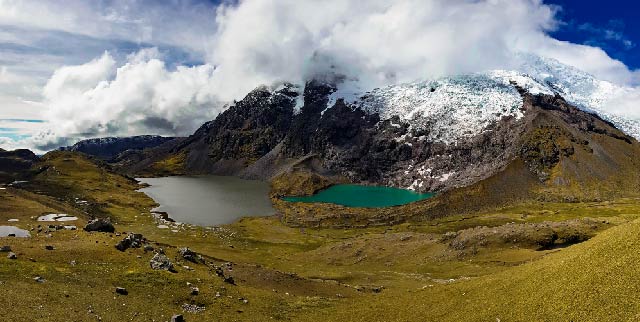





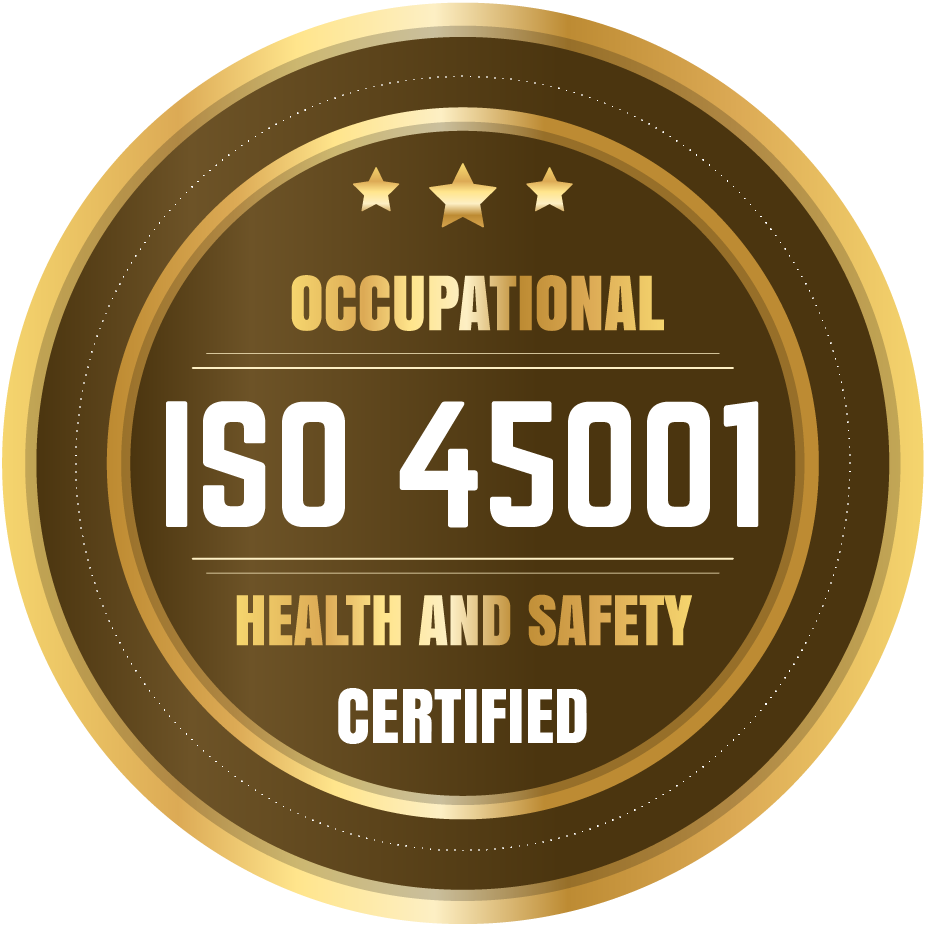









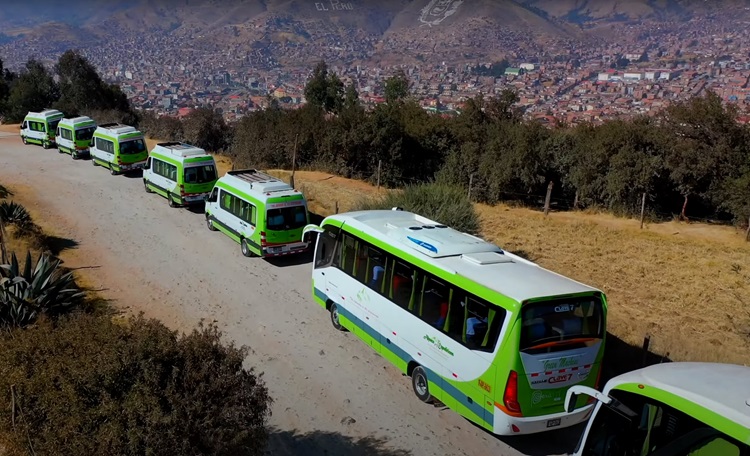
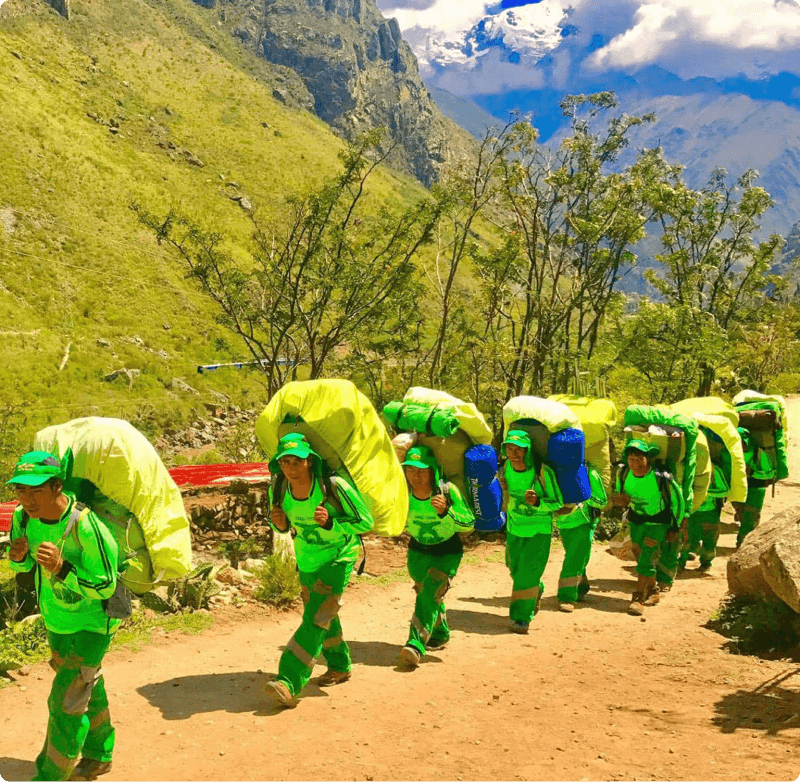 Porters will carry up to 7 kg of your personal items, which must include your sleeping bag and air mat (if you bring or rent one). From us, these two items weigh a combined total of 3.5 kg.
Porters will carry up to 7 kg of your personal items, which must include your sleeping bag and air mat (if you bring or rent one). From us, these two items weigh a combined total of 3.5 kg.